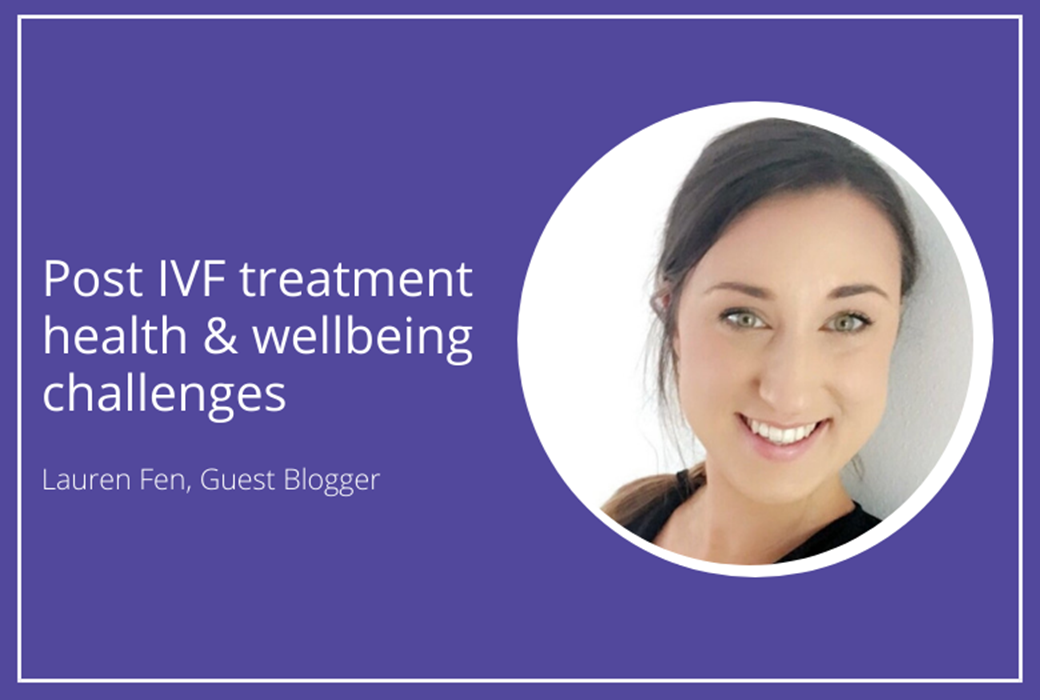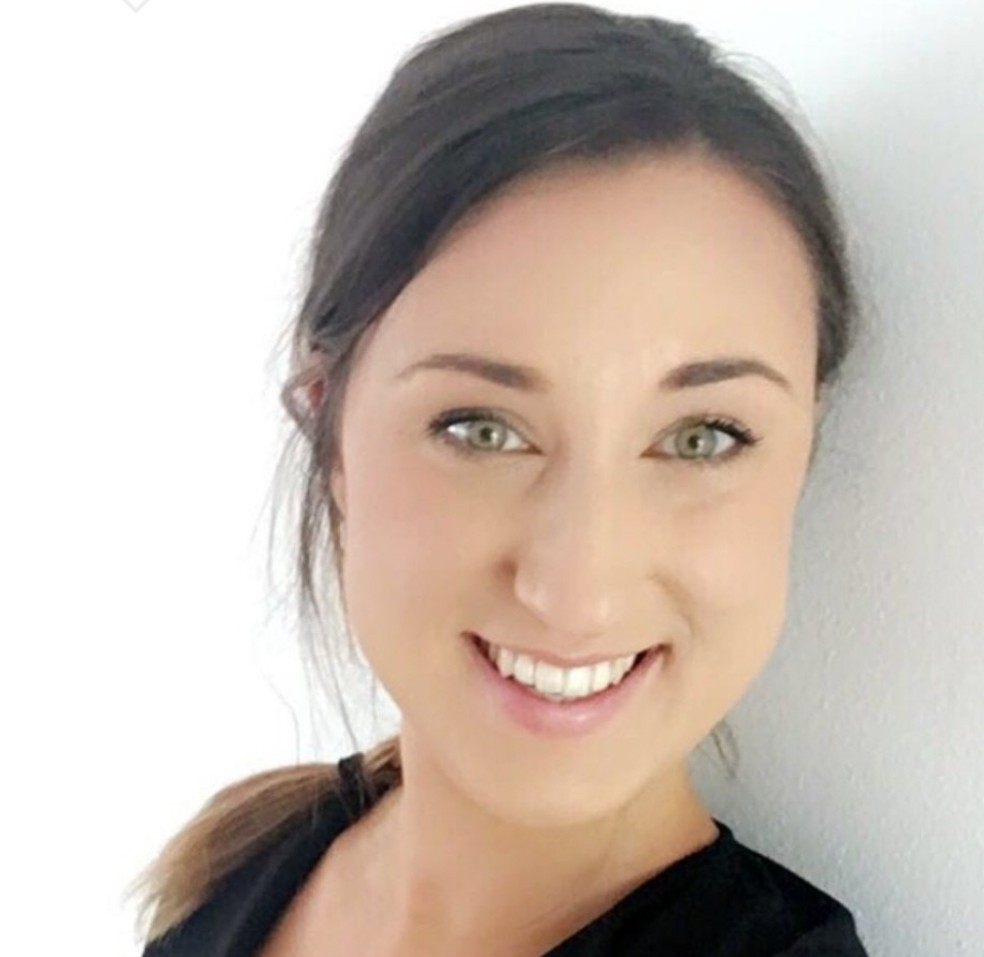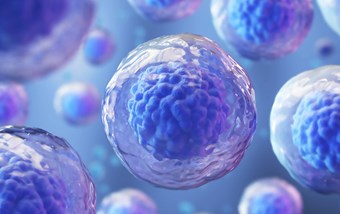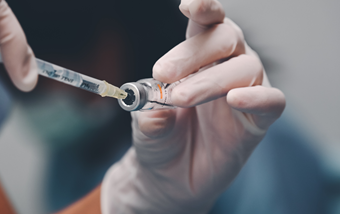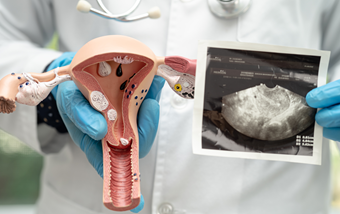For every woman who tells you her IVF was successful following a major health kick, there’s a woman who’ll tell you she achieved the same following a major health blip. There are all sorts of speculations out there – even amongst medical professionals - and, if you’re anything like me, you’ll focus on the “health kick” success stories when you’re feeling motivated and the “health blip” success stories when someone offers you a chocolate brownie. It’s all about balance, right?
How you choose to manage your health during treatment is a conversation to have with your Doctor or Nurse (who will be far better placed at providing context to that article you read on the internet about the woman who got pregnant after drinking 36 mugs of bone broth, for instance). And whilst there may not be any concrete evidence to suggest that things like acupuncture or yoga or even mugs of bone broth will improve your odds of success, in my opinion, if it makes you feel better and you haven’t been advised otherwise by a medical professional – it can’t hurt. Except acupuncture, sometimes that does.
But looking after your health and wellbeing isn’t just about maximising your chances of pregnancy – yes, for most people (including me) it is perhaps the main motivator – but it’s also about managing the side-effects that so often go hand in hand with fertility treatment; the stress and mood swings, the aches and pains, the bouts of nausea and the increased appetite; the changes to sleeping patterns and waist size and all the breakouts and breakdowns that those pesky hormones can cause. For me, keeping my mind and body healthy felt just as important – if not more important – after the treatment as it did during the treatment. Put it this way - it was a lot easier to make healthy decisions when I thought there might be a growing embryo on board – less easy to navigate the hangover of post-treatment weight gain and emotional fallout that came with a negative test result.
Before my first round of treatment, I spent months preparing my body and mind for a possible pregnancy, I learnt how to boost the quality of my eggs, increase the lining of my uterus and how to maximise my chances of IVF success. I changed my diet, my lifestyle and had acupuncture for weeks in advance and felt totally ready – excited even – to get started. But I never really planned beyond that. I didn’t know how exhausting and difficult the treatment would be. I didn’t know how long the side-effects of the hormones would last. I didn’t appreciate how much my body would change or how sad I would feel or how much it would affect my daily life. I simply wasn’t at all prepared for the reality of what a failed round of IVF would feel like.
Attend our FREE Online IVF Event with Live Nurse Q&A and get your questions answered by a Fertility Nurse Consultant.
ADDED BONUS - everyone who attends our webinar will receive £50 off an Initial Consultation and Scan at abc ivf.

Whilst a quick Google search brings up thousands of pages about getting healthy for IVF and pregnancy - very few talk about managing the side effects and health implications that so many people experience during and after treatment. So, in an attempt to broaden the information that crops up in Google-sphere, I reached out to the IVF community online and asked them about the impact of IVF on their health and their responses fell into two distinct categories: mental health challenges and weight gain. Here's what they said...
"I think for me, the mental side has been much more challenging than the physical side of things. Before treatment I was worried about the needles and the procedures. I wasn't prepared for how difficult it would be when it didn't work. I've had anxiety as a side effect which has been a tough ride. To help, I'm very lucky to have a fabulous therapist, a supportive husband and understanding family and friends. I've slowly learned not to put too much pressure on myself to 'continue as normal' during treatment (and between cycles!) and to give myself the time and space I need. And zumba also helped!"
@joeyburke21
"I struggled massively with bloating. I looked about 5 months pregnant. My only advice is to get comfy, baggy clothes!"
Anonymous
"I had constant headaches during stims and the only thing that helped was carbs! I put on a lot of weight! I'm still trying to lose the weight but yoga and swimming makes me feel like I'm at least doing something!
Anonymous
"My biggest challenge through treatments has been anxiety. During our first IVF we bought a Nintendo Switch so that in the evenings I could stay distracted by trying to beat my husband at Mario Kart! It actually helped a lot!"
@rockabyemaybe
"I experienced massive weight gain and exhaustion. I’ve tried to manage the side effects by ensuring that I’m eating a well balanced diet, drinking lots of water and getting out and about in the fresh air as much as possible."
@boushraousselam
"Physically, I've improved what I put into my body. Mentally... it’s been a whole different challenge. I didn’t understand anxiety previously and I never thought I would be someone who would be depressed but infertility has flipped me 360. I am so grateful for the counselling I have received. And I’m having to learn to put myself first and invest in my mental health."
@bee_dreams
"IVF impacted my mood, my energy, mental health, weight, ability to work, finances and periods. My best advice to others is to put yourself first, always. Stop planning and be spontaneous & uncommitted. Get good nutrition, rest and exercise. Treat yourself. Find out what makes you happy and what gives you strength. Stay away from people who are unsupportive, surround yourself with love and join Instagram!"
@lemon_ade_baby
"I’ve found the lack of easy access to emotional support difficult. My first clinic had no counselling support as it was cut due to funding and my current clinic has two counsellors who are lovely, however they work 2 days a week so appointments are booked way in advance which is hard for continuity. I went to my gp who referred me to the local IAPT mental health service but I didn’t meet the criteria. I was lucky enough to be able to access some counselling through my work but this was more about general anxiety rather than specific to TTC. Discovering this community online has been a life saver! Meeting / following people in similar circumstances has been inspirational."
@shinybuttons2019
"I put on nearly 2 stone during 3 rounds of treatment. I stopped all exercise on doctor's orders and have really struggled to get back into the habit. Walking meditations have helped me start to get more active again."
Anonymous
"I had reflexology throughout my treatment and found it so relaxing. It’s not for everyone but I think finding something that relaxes you it’s so important!"
@amystagg
"Since my IVF failed, I've had terrible insomnia. It's like my brain can't switch off and I wake up in the night all the time. Days when I get fresh air and exercise are usually better though."
Anonymous
"Last year I lost about 17kg before doing IVF... during two stim cycles of IVF I put back on about 7kg which I’m still in the process of trying to lose. Eating healthy and exercise both help me to manage the effects but emotions resulting from ivf/ infertility/ loss always deter the healthy eating."
@sammigirl
"I was really down after my first round failed but I knew feeling that way wouldn't help so I tried really hard to stay positive - talking to other IVF warriors on social media helped!"
@ivf_got_this_uk
"I found my friends reactions really difficult. Nobody understood, not even my partner and I felt really lonely. Weekly accupuncture helped me to relax - expensive but worth it".
Anonymous
"After my second round of IVF, my stomach swelled so much that I got stretch marks all over it. It makes me so sad because that usually happens when people are pregnant - but I wasn't. I've lost so much confidence in my body since IVF but I'm trying to change my attitude and feel more proud of myself for what I'm doing. Next time I'm using bio oil to stop more stretch marks!"
Anonymous
A lot of focus and attention goes into preparing your mind and body for IVF; and whilst a failed IVF cycle is the outcome nobody wants to think about - there's still good reason to understand the possible health implications of a treatment cycle that doesn't result in a pregnancy. Because, let's face it, the sad reality is that more IVF cycles end in a big fat negative than a big fat positive.
